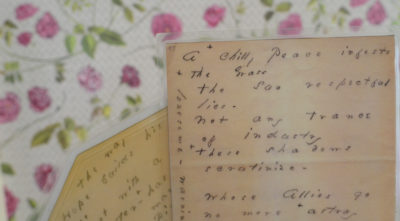
Join us for a lively virtual discussion of Emily Dickinson’s poetry and letters, meeting once a week for a month (April or June). This program is designed to welcome newcomers and seasoned readers of Dickinson alike.
Each session is facilitated by a guest scholar with unique expertise, who leads the group in discussion following an introductory talk. Brief reading handouts will be distributed prior to each month’s program.
Topics and Leaders:
-
“My Romantic Brother!”: Emily and Austin Dickinson in Conversation and Competition with Gerard HolmesReading her poems and letters, we’ll consider the role of Emily Dickinson’s older brother in the development of her youthful thought and nascent writing practice.
-
Constellating Dickinson: Reading Across the Archives with Emily Coccia
Examining the affordances of online archives and print volumes of Emily Dickinson’s writings for facilitating clustered close readings to identify constellated images, resonant phrases, and recurring thematic concerns across Dickinson’s sprawling textual corpus
-
“To the World”: Emily Dickinson and the Other Among Us with Anna VQ RossEmily Dickinson famously withdrew form most human society for the last 15 years of her life, but she emphatically did not retreat from the rest of the world, and her poems. In this discussion group, we’ll read poems in which Dickinson observes, listens, and speaks to the natural world around her, and discover what it tells her.
-
“The Door ajar / That Oceans are”: Seeing Emily Dickinson’s Seas with Susannah Sharpless
This session will navigate material and metaphorical oceans in Emily Dickinson’s poetry
Format
As a registrant, you are signing up to join a small group of 25 or fewer regular participants for four 90-minute Zoom sessions. Meetings are participatory, with video and audio encouraged. Because we want everyone to feel comfortable speaking, full sessions will not be recorded. The program is designed for adult audiences (18+).
Registration
We are offering an identical program for April and June groups. Please review the dates carefully — space is limited.
Refunds are not available for this program.
April Group, $125 program fee (inclusive of all sessions), limited to 25 participants
Wednesday, April 8, 6-7:30pm ET
Wednesday, April 15, 6-7:30pm ET
Wednesday, April 22, 6-7:30pm ET
Wednesday, April 29, 6-7:30pm ET
April Group, $125 program fee (inclusive of all sessions), limited to 25 participants
Wednesday, June 3, 6-7:30pm ET
Wednesday, June 10, 6-7:30pm ET
Wednesday, June 17, 6-7:30pm ET
Wednesday, June 24, 6-7:30pm ET
For Educators:
Educators may request a certificate attesting to your participation in the program.
Reservations are made on a first-come, first-served basis.
Questions: Don’t hesitate to reach out to edmprograms@emilydickinsonmuseum.org with any questions about the program.
Gerard Holmes is a Lecturer in the English Department at the University of Maryland, College Park, and the Treasurer of the Emily Dickinson International Society. He has edited and co-edited special themed issues of The Emily Dickinson Journal (EDJ), ESQ, and Women’s Studies, and published standalone essays in EDJ, the Oxford Handbook to Emily Dickinson, Contemporaries / Post-45, and Reception. Subject interests include nineteenth-century uses of improvisation, play, surprise, and related ephemeral, imperfectly documented, or otherwise “immaterial” (in contrast with material) culture.
Emily Coccia is the Robert A. Oden Jr. Postdoctoral Fellow for Innovation in the Liberal Arts at Carleton College, where she teaches and works on nineteenth-century literature; LGBTQ history; and digital fan cultures. Her book project, Textually Queer, considers how American workingwomen’s creative, resistant, and social reading practices allowed them to envision queer futures and to cultivate spaces for pleasure and intimacy. Her research has appeared in journals including Legacy: A Journal of American Women Writers, Transformative Works and Cultures, The Emily Dickinson Journal, and Signs: Journal of Women in Culture and Society.
Anna V.Q. Ross is the author of the poetry collections Flutter, Kick (Red Hen Press), winner of the Benjamin Saltman Poetry Award, the Julia Ward Howe Award in Poetry, and named a 2022 Best New Poetry Book by the New York Public Library; If a Storm (Anhinga Press), winner of the Robert Dana-Anhinga Award; and the chapbook Figuring (Bull City Press). She holds an MFA from Columbia University, and her work has been supported by fellowships from the Fulbright Foundation, Massachusetts Cultural Council, Vermont Studio Center, Virginia Center for the Creative Arts, Sewanee Writers’ Conference, and the Community of Writers. Her poetry has appeared in journals including American Poetry Review, Harvard Review, The Kenyon Review, Missouri Review, The Nation, The Paris Review, Plume and on The Slowdown. She teaches creative writing and literature at Tufts University and lives with her family in Dorchester, MA, where she raises chickens.
Susannah Sharpless specializes in nineteenth-century American literature, and her research and teaching focus on oceanic studies, the environmental humanities, gender, and poetics. Her manuscript-in-progress establishes the long-overlooked presence of women in oceanic imaginaries, demonstrating how literary representations of the sea’s destabilizing power connect to the material and ecological histories that extend beyond the stereotypically masculine spheres of ship and port. Her research has been published or is forthcoming in J19, ESQ, and The Emily Dickinson Journal, and her teaching has been recognized with Cornell’s Deanne Gebell Gitner Annual Prize for Teaching Assistants. She has also written and produced an episode of the C19 Podcast, and published poetry in Bennington Review and Jewish Currents, among others. She is currently co-editor of The Emily Dickinson Journal.
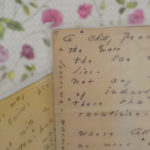
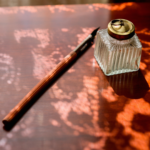
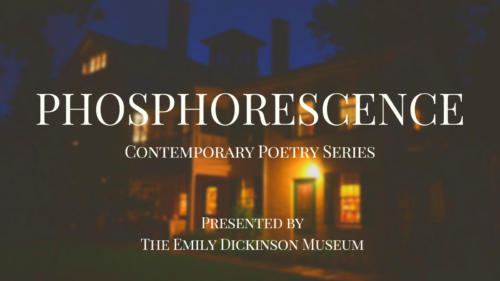
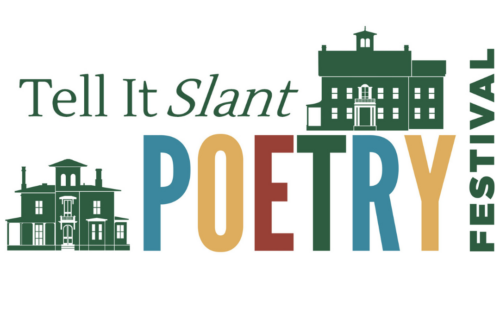
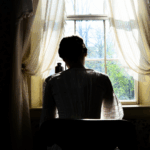





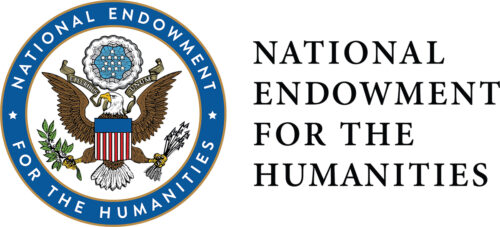
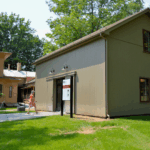
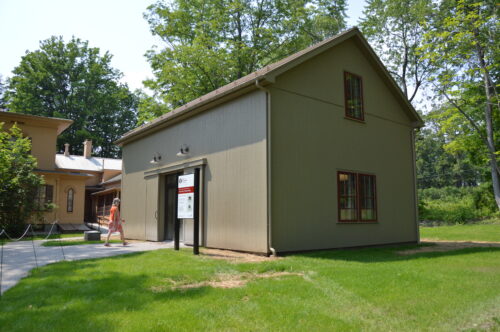
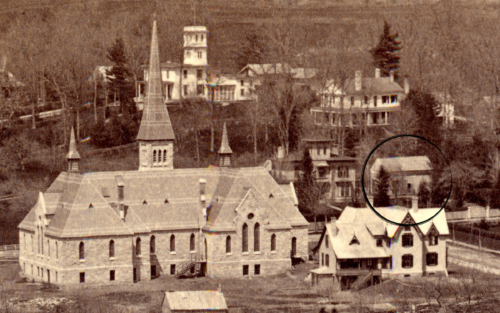
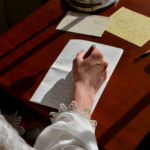
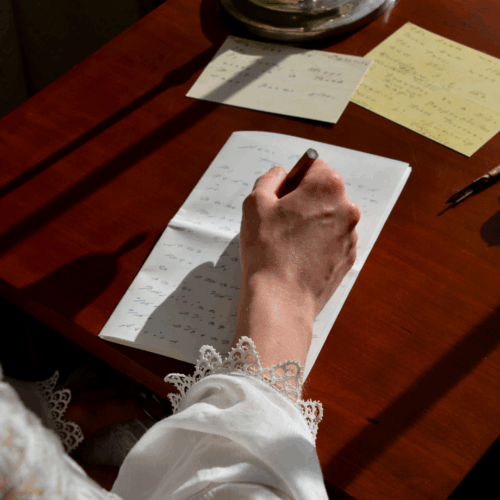
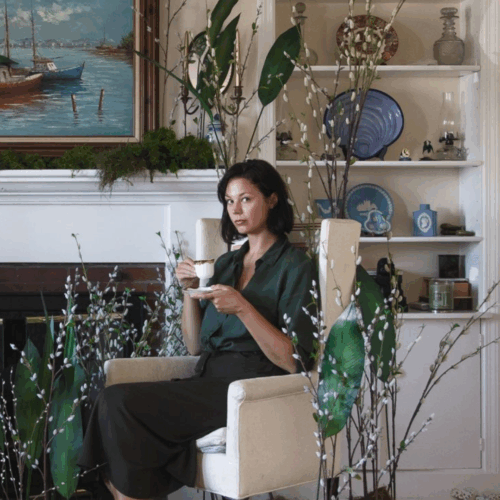 Adrien Broom is an award-winning photographer, set designer, and filmmaker based in NYC and Connecticut. Drawing upon her multidisciplinary background in animation, fine art, photography, and decorative arts, Broom creates intricate, handcrafted sets that transport viewers to fantastical realms, exploring the intersection of nature and fantasy. Broom meticulously constructs physical sets that invite viewers into tangible, imaginative worlds. Her practice spans gallery and museum exhibitions, commercial projects, private commissions, and conceptual portraiture—all unified by her consistent artistic vision and creative philosophy. Influenced by diverse artists from Gregory Crewdson and Jim Henson to John Singer Sargent and Shona Heath, Broom has developed a signature approach to creating extraordinary worlds both photographically and as installations. Her award-winning work has been exhibited at the Centro di Cultura Contemporanea (Florence), Hudson River Museum (Yonkers), Southern Vermont Arts Center, and Edward Hopper Museum (Nyack among others). In 2025, Broom will present solo exhibitions at the Fred Jones Jr. Museum of Art in Oklahoma and the Mark Twain Museum in Hartford, CT. Her touring exhibition, A Colorful Dream (2019-2026), exemplifies her commitment to inspiring wonder.
Adrien Broom is an award-winning photographer, set designer, and filmmaker based in NYC and Connecticut. Drawing upon her multidisciplinary background in animation, fine art, photography, and decorative arts, Broom creates intricate, handcrafted sets that transport viewers to fantastical realms, exploring the intersection of nature and fantasy. Broom meticulously constructs physical sets that invite viewers into tangible, imaginative worlds. Her practice spans gallery and museum exhibitions, commercial projects, private commissions, and conceptual portraiture—all unified by her consistent artistic vision and creative philosophy. Influenced by diverse artists from Gregory Crewdson and Jim Henson to John Singer Sargent and Shona Heath, Broom has developed a signature approach to creating extraordinary worlds both photographically and as installations. Her award-winning work has been exhibited at the Centro di Cultura Contemporanea (Florence), Hudson River Museum (Yonkers), Southern Vermont Arts Center, and Edward Hopper Museum (Nyack among others). In 2025, Broom will present solo exhibitions at the Fred Jones Jr. Museum of Art in Oklahoma and the Mark Twain Museum in Hartford, CT. Her touring exhibition, A Colorful Dream (2019-2026), exemplifies her commitment to inspiring wonder.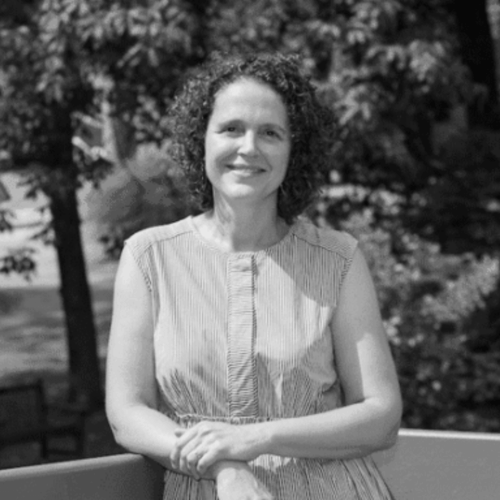 Ligia Bouton was born in Sao Paulo, Brazil, and currently divides her time between Massachusetts and New Mexico in the US. Her creative work combines sculpture and photography with performance and digital video to recreate appropriated narratives and research drawn from the history of science, literature, and other sources. Bouton’s recent projects have been shown at museums such as the Copenhagen Contemporary (Denmark), Crystal Bridges Museum of American Art, the National Museum of Women in the Arts, Guildhall Art Gallery (London, UK), Minneapolis Institute of Art, SITE Santa Fe, the New Mexico Museum of Art, the Philadelphia Art Alliance, Bellevue Arts Museum, the Minneapolis Institute of Art, and the Boulder Museum of Contemporary Art. In 2016, Bouton’s work was featured in the exhibition, “Charlotte Great and Small,” celebrating the bicentenary of Charlotte Brontë’s birth at the Brontë Parsonage Museum in Yorkshire, England. Bouton’s video work has been shown at Art Claims Impulse in Berlin, in the Biennial of Contemporary Art, Nimes, France, and at the Temporary Art Center, Eindhoven, The Netherlands, as well as in The Female Avant Garde Festival in Prague. Reviews of this work have appeared in Art in America, Art Papers, The Art Newspaper, Art Ltd., and The New York Times. She is the recipient of a 2016 Creative Capital grant for the opera “Inheritance” which premiered at University of California, San Diego in 2018 and a 2020 Smithsonian Artist Research Fellowship for her project “25 Stars: A Temporary Monument for Henrietta Swan Leavitt”. Her work can be found in numerous public and private collections including Crystal Bridges Museum, the Albuquerque Museum, St. John’s College, and the Falconer Gallery at Grinnell College. Bouton is currently Professor of Art Studio at Mount Holyoke College in South Hadley, Massachusetts.
Ligia Bouton was born in Sao Paulo, Brazil, and currently divides her time between Massachusetts and New Mexico in the US. Her creative work combines sculpture and photography with performance and digital video to recreate appropriated narratives and research drawn from the history of science, literature, and other sources. Bouton’s recent projects have been shown at museums such as the Copenhagen Contemporary (Denmark), Crystal Bridges Museum of American Art, the National Museum of Women in the Arts, Guildhall Art Gallery (London, UK), Minneapolis Institute of Art, SITE Santa Fe, the New Mexico Museum of Art, the Philadelphia Art Alliance, Bellevue Arts Museum, the Minneapolis Institute of Art, and the Boulder Museum of Contemporary Art. In 2016, Bouton’s work was featured in the exhibition, “Charlotte Great and Small,” celebrating the bicentenary of Charlotte Brontë’s birth at the Brontë Parsonage Museum in Yorkshire, England. Bouton’s video work has been shown at Art Claims Impulse in Berlin, in the Biennial of Contemporary Art, Nimes, France, and at the Temporary Art Center, Eindhoven, The Netherlands, as well as in The Female Avant Garde Festival in Prague. Reviews of this work have appeared in Art in America, Art Papers, The Art Newspaper, Art Ltd., and The New York Times. She is the recipient of a 2016 Creative Capital grant for the opera “Inheritance” which premiered at University of California, San Diego in 2018 and a 2020 Smithsonian Artist Research Fellowship for her project “25 Stars: A Temporary Monument for Henrietta Swan Leavitt”. Her work can be found in numerous public and private collections including Crystal Bridges Museum, the Albuquerque Museum, St. John’s College, and the Falconer Gallery at Grinnell College. Bouton is currently Professor of Art Studio at Mount Holyoke College in South Hadley, Massachusetts.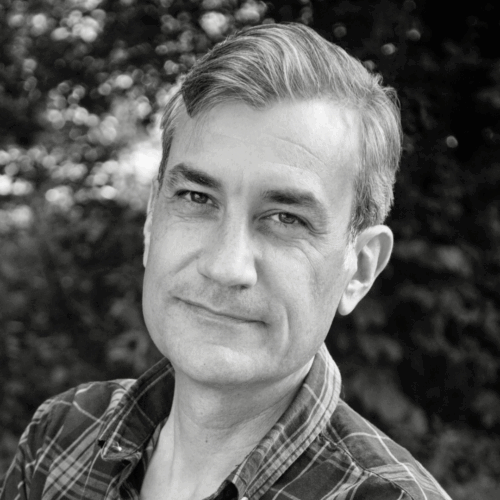 Matt Donovan is the author of four books and two chapbooks: We Are Not Where We Are (an erasure of Walden, co-authored with Jenny George, Bull City Press 2025), The Dug-Up Gun Museum (a collection of poems about guns and gun violence in America, BOA 2022), Missing Department (a collaborative collection of art and poetry created with artist Ligia Bouton, Visual Studies Workshop 2023), A Cloud of Unusual Size and Shape: Meditations on Ruin and Redemption (a book of lyric essays, Trinity University Press 2016), Rapture & the Big Bam (selected by Lia Purpura for the Snowbound Chapbook Competition, Tupelo Press 2016), and Vellum (selected by Mark Doty for the Bakeless Contest, Houghton Mifflin 2007). Donovan is the recipient of a Whiting Award, a Rome Prize in Literature, a Pushcart Prize, a Levis Reading Prize, and an NEA Fellowship in Literature. His work has appeared in numerous journals, including AGNI, American Poetry Review, The Believer, Kenyon Review, The New England Review, Poetry, Threepenny Review, and Virginia Quarterly Review. Donovan serves as Director of the Boutelle-Day Poetry Center at Smith College.
Matt Donovan is the author of four books and two chapbooks: We Are Not Where We Are (an erasure of Walden, co-authored with Jenny George, Bull City Press 2025), The Dug-Up Gun Museum (a collection of poems about guns and gun violence in America, BOA 2022), Missing Department (a collaborative collection of art and poetry created with artist Ligia Bouton, Visual Studies Workshop 2023), A Cloud of Unusual Size and Shape: Meditations on Ruin and Redemption (a book of lyric essays, Trinity University Press 2016), Rapture & the Big Bam (selected by Lia Purpura for the Snowbound Chapbook Competition, Tupelo Press 2016), and Vellum (selected by Mark Doty for the Bakeless Contest, Houghton Mifflin 2007). Donovan is the recipient of a Whiting Award, a Rome Prize in Literature, a Pushcart Prize, a Levis Reading Prize, and an NEA Fellowship in Literature. His work has appeared in numerous journals, including AGNI, American Poetry Review, The Believer, Kenyon Review, The New England Review, Poetry, Threepenny Review, and Virginia Quarterly Review. Donovan serves as Director of the Boutelle-Day Poetry Center at Smith College.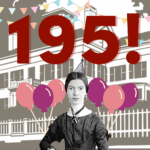
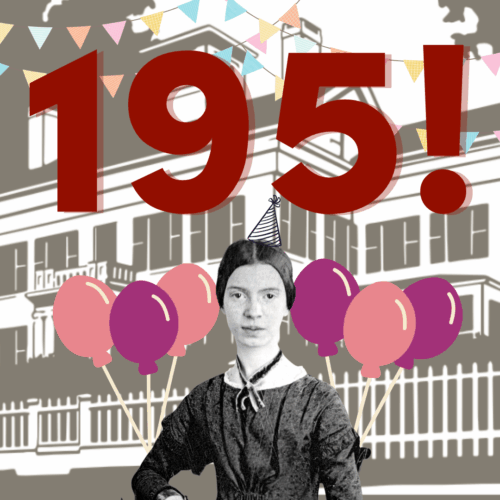 You are cordially invited to the Emily Dickinson Museum’s celebration of the poet’s 195th birthday! On Saturday, December 6, join us in person at the Homestead and The Evergreens for a free open house with tours, crafts, music, hot cider and gingerbread cookies!
You are cordially invited to the Emily Dickinson Museum’s celebration of the poet’s 195th birthday! On Saturday, December 6, join us in person at the Homestead and The Evergreens for a free open house with tours, crafts, music, hot cider and gingerbread cookies! 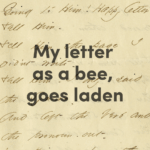
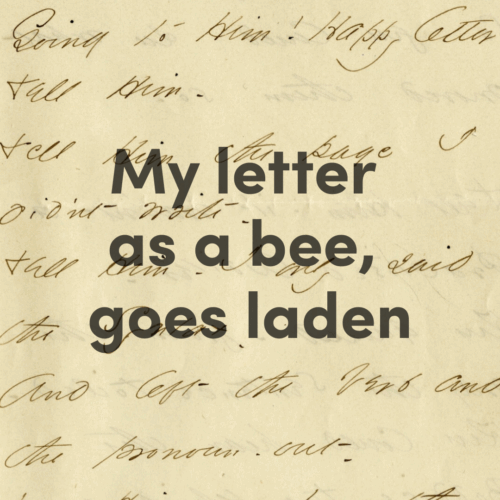
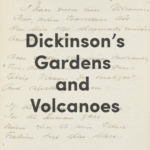
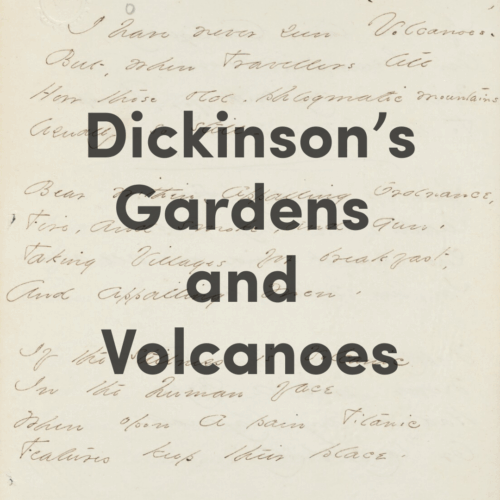
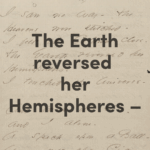
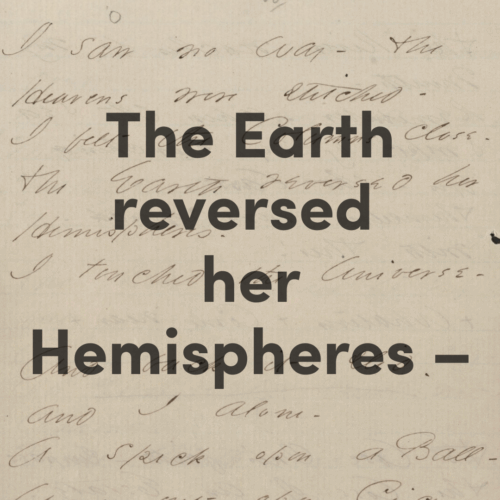
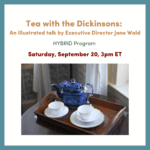
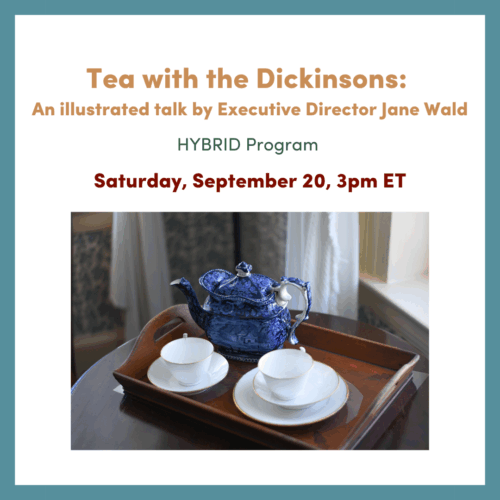 Introduced to the European market in the seventeenth-century, trade in tea – and subsequently in coffee and chocolate – became a means of establishing empires and generating the almost frantic consumerism of the eighteenth and nineteenth centuries in the West. Emily Dickinson and her family delighted in these exotic imported beverages and, like the rest of New England, acquired the requisite material goods to make and serve tea, coffee, and chocolate in their own family circle and for their guests. This talk will explore the meanings, settings, and equipment for “taking tea” in Emily Dickinson’s world, including original family objects now in the Museum’s collection.
Introduced to the European market in the seventeenth-century, trade in tea – and subsequently in coffee and chocolate – became a means of establishing empires and generating the almost frantic consumerism of the eighteenth and nineteenth centuries in the West. Emily Dickinson and her family delighted in these exotic imported beverages and, like the rest of New England, acquired the requisite material goods to make and serve tea, coffee, and chocolate in their own family circle and for their guests. This talk will explore the meanings, settings, and equipment for “taking tea” in Emily Dickinson’s world, including original family objects now in the Museum’s collection.